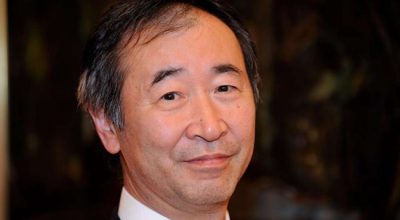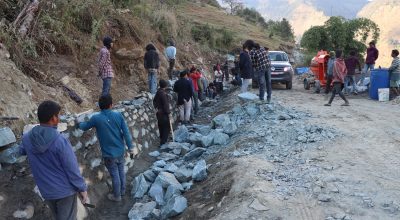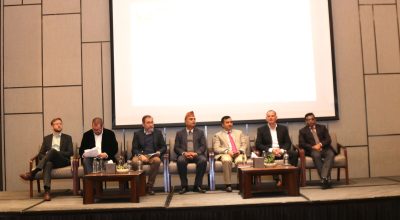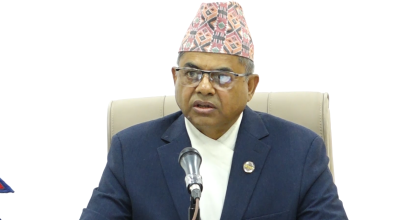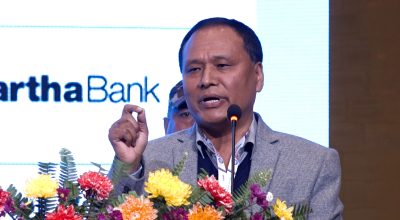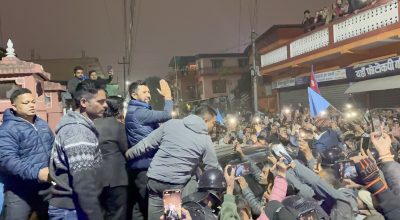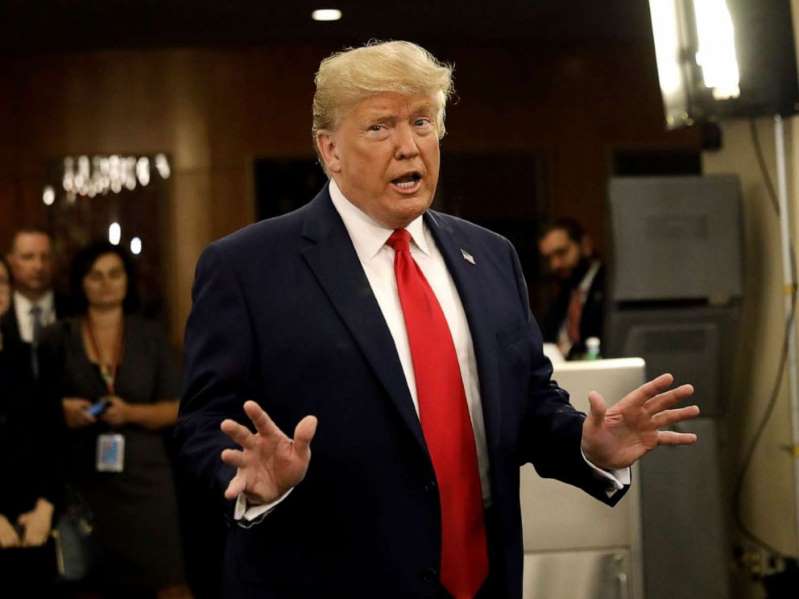
Newyork, Sept 24 (ABC News): With the Middle East on high alert after an attack on Saudi oil facilities, world leaders were jockeying at the United Nations on Monday to respond to the attack and find a resolution to heightened tensions between the U.S. and Iran.
President Donald Trump said he was ready for a new agreement with Iran, a year and a half after he withdrew the U.S. from the Iran nuclear deal and stringently reimposed sanctions on Tehran. But Iran’s President Hassan Rouhani, who arrived in New York on Monday for the U.N. General Assembly, has said there will be no negotiations until Trump eases or lifts sanctions, which the U.S. agreed to do under the original deal.
When asked by ABC News on Monday whether Rouhani would meet Trump, Iranian Foreign Minister Mohammad Javad Zarif responded emphatically, “No!”
After expressing an openness to meeting Rouhani last month, Trump seemed to admit it’s no longer likely.
“We have a long way to go. We’ll have to see what happens. We’re doing just fine,” he told reporters as he entered the U.N.
Hours later, during a photo op with Singapore’s prime minister, Trump talked up his tough sanctions.
“We have a lot of pressure on them right now — more pressure than they’ve ever had. … A lot of things are happening with respect to Iran. A lot more than you would know. A lot more than the media knows, OK? I’ll be discussing it a little bit tomorrow,” he said, one day before his address to the U.N. General Assembly.
Still, while the U.S. and Iranian delegations are not likely to meet, other world leaders are trying to step in to resolve tensions between the two. French President Emmanuel Macron spoke to Trump on Monday morning before his meeting with Rouhani on Monday evening, he told reporters — with a Trump meeting possible for Tuesday.
The attack on Saudi Arabia’s oil processing facilities, one of the largest in the world, seems to have changed the calculus for the European countries who remain signatories to the nuclear deal — Germany, France and the United Kingdom — and have tried to lower tensions between the U.S. and Iran. In a joint statement Monday, they said they had concluded, “Iran bears responsibility for this attack. There is no other plausible explanation.”
But the diplomatic divide with the Trump administration over the nuclear deal, formally known as the Joint Comprehensive Plan of Action, or JCPOA, remains.
The U.S. and Europe now agree on the need to begin negotiations with Iran on a new agreement. The joint European statement said, “Time has come for Iran to accept negotiation on a long-term framework for its nuclear programme as well as on issues related to regional security, including its missiles programme and other means of deliver.”
But how to get to those talks is the source of division. The Europeans have proposed an interim agreement where Iran returns to compliance with the nuclear deal in exchange for the U.S. permitting some economic aid to Iran, for example through a $15 billion line of credit. If the two sides agreed to that, a diplomatic source told ABC News, the hope is that they could begin negotiations on a new deal that extends the nuclear deal’s limits on Iran and addresses its ballistic missile program.
When Macron first broached the subject with Trump during the G-7 summit in late August, Trump said he liked the idea and would consider it. But on Monday, he bristled at the idea of Macron mediating.
“He’s a friend of mine, but we’re not looking for any mediators. They know who to call,” he said of Iran’s leaders.
His senior advisers, including Treasury Secretary Steven Mnuchin, have also shot down the idea and made clear that they will do nothing to halt their “maximum pressure” campaign against Iran.
That campaign involves the tightest economic sanctions against Iran ever, with a push to halt all Iranian oil exports and the designation of Iran’s Revolutionary Guard Corps, an elite wing of its military, as a foreign terrorist organization. In response to that pressure, Iran has spent the last few months lashing out in the Persian Gulf — attacking commercial oil tankers, shooting down a U.S. drone, seizing a handful of ships and attacking one of the world’s largest oil processing facilities in Saudi Arabia.
Iran denies responsibility for that attack, which took out more than half of Saudi oil production. But it has started to violate its commitments under the nuclear deal, with each step demanding that European powers step in and provide economic aid or else they’ll violate another threshold.
During the General Assembly, the Trump administration intends to bring the focus on Iran after blaming it for the massive Saudi attack, according to a senior State Department official, but they added that the U.S. is really looking for the Saudis to take the lead and present evidence to the U.N. to rally international support for them after they suffered this attack.
“Now it’s up to the international community and really up to Saudi Arabia for what they’re going to say this week, what they’re going to present to the U.N. because it was the Saudis that were attacked and had almost 60% of their oil supply taken off the market,” the official said.





